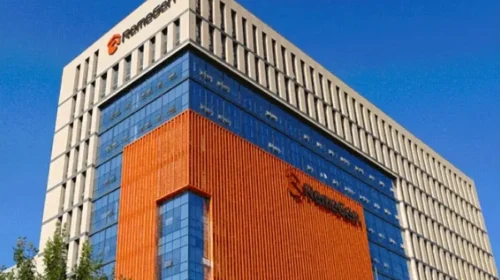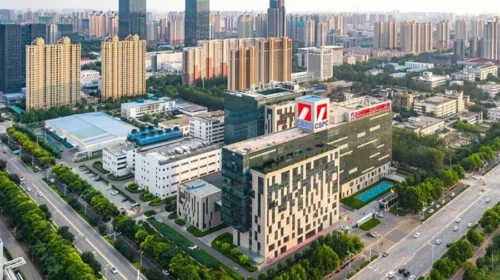PegBio aims to bulk up its finances to deliver weight-loss drugs

The Chinese developer of anti-obesity and diabetes drugs has applied for a Hong Kong listing to fund its commercial plans, but will face strong competition
Key Takeaways:
- The company’s core diabetes drug is likely to be approved in China in the first quarter of 2025 but will land in a fiercely contested market
- PegBio has been backed by star industry funds such as YF Capital and Yingke PE during 10 rounds of financing
By Molly Wen
A new class of drugs has been hailed as a scientific breakthrough in the fight against obesity and diabetes.
A year ago, the journal Science chose GLP-1 therapies as the standout story of 2023, saying the blockbuster drugs that mimic gut hormones to manage appetite and blood sugar were reshaping medicine, popular culture and even global stock markets.
Indeed, producers of the first wave of glucagon-like peptide products were feted on the equity markets, and now other drug developers are hoping to follow suit, including China’s PegBio Co. Ltd.
Spurred by the buzz in the weight-loss market, the biotech has filed to list on the Hong Kong Stock Exchange with CICC as the sole sponsor. The application marks the company’s second attempt at an IPO after it failed to land on the STAR Market in 2021.
Founded in 2008, PegBio develops innovative drugs for chronic conditions such as Type 2 diabetes and fatty liver disease, as well as targeting obesity and metabolic disorders. The company has come up with one core product in the GLP-1 category as well as five other candidate drugs, but none of them has yet been launched on the market.
The flagship therapy, PB-119, is a long-acting GLP-1 receptor agonist for treating diabetes and promoting weight loss. The IPO prospectus said clinical trials of the drug had shown it delivered multiple benefits in terms of blood sugar control, cardiovascular health and weight management.
The product is delivered by injection just once a week, offering an advantage over some rival therapies that must be administered more regularly. Of the three GLP-1 products that have been approved in China, two require daily injections and only Semaglutide, developed by Novo Nordisk (NVO.US), can be dispensed on a weekly basis.
Anti-obesity drugs are now the hottest ticket in the pharmaceutical industry, offering a huge potential payout. Sales of Semaglutide reached $20.3 billion in the first three quarters of 2024, while a competing product from Eli Lilly (LLY.US), Tirzepatide, racked up $11 billion in sales in the same period. Competition for the lucrative market is understandably fierce. As of August 2024, 338 clinical trials of GLP-1 drugs were ongoing or had been carried out around the world, according to the U.S. database ClinicalTrials.gov.
PegBio addressed the market challenge in its prospectus, saying PB-119 will face 13 competitors for the treatment of Type 2 diabetes and more than 15 for obesity in China alone. Chinese regulators accepted the drug as a new diabetes treatment in September last year and a green light for marketing is expected in the first quarter of 2025. Meanwhile, the drug has completed Phase Two trials in the United States for Type 2 diabetes, with Phase Three pending. However, the study of PB-119 as an obesity treatment is still in its early phase, with no guarantee of achieving late-stage success.
Like many biotechs, PegBio has been awash with red ink for some time, saddled with hefty outgoings for research without any offsetting income stream. The company spent 280 million yuan ($39 million) on R&D in 2022, 237 million yuan the following year and 76 million yuan in the first eight months of 2024. Over the corresponding period it made net losses of 306 million yuan, 279 million yuan and 203 million yuan.
Cash flow challenge
However, R&D expenditure has fallen sharply this year. On the one hand, less money may have been needed for clinical testing after the application for PB-119 was filed in 2023, but a cash crunch could be another factor. Cash equivalents held by PegBio had dwindled to just 27.44 million yuan by the end of August 2024 from 77.15 million yuan at the end of 2023. Clearly the company faces a pressing need to replenish its finances, or it may have to sell some of its pipeline assets.
PegBio revealed in the prospectus that it may seek future opportunities to collaborate on the development and launch of its drug candidates, through licensing-out deals or joint commercialization efforts. It would not be the first time that Chinese developers of GLP-1 treatments have sold on some of the rights to their drugs.
For example, HEC ChangJiang Pharmaceutical (1558.HK) announced last Tuesday that it had struck a licensing deal giving Apollo Therapeutics the right to develop and market its FGF21/GLP-1 drug candidate outside of Greater China in exchange for $12 million up front and milestone payments of up to $926 million.
Before filing for the Hong Kong IPO, PegBio had carried out 10 rounds of financing, receiving support from star industrial funds such as YF Capital, Yingke PE and Qianhai FOF. The last round of F+ financing in June 2023 added 134 million yuan to the pot, taking PegBio’s valuation to 4 billion yuan at 11 yuan per share, compared with 1.5 billion yuan in 2020.
The IPO proceeds will be used for the market launch of the mainstay drug and for work on expanding the range of approved conditions, as well as developing other pipeline drugs and covering general operating costs, PegBio said.
The other five drugs are still in preclinical development or early-stage testing, requiring substantial R&D investment before they can generate any commercial returns. It will also be costly to promote PB-119 when the drug lands on the market. With all these big outlays in the offing, PegBio may struggle to land in the black for some time yet.
To subscribe to Bamboo Works free weekly newsletter, click here






